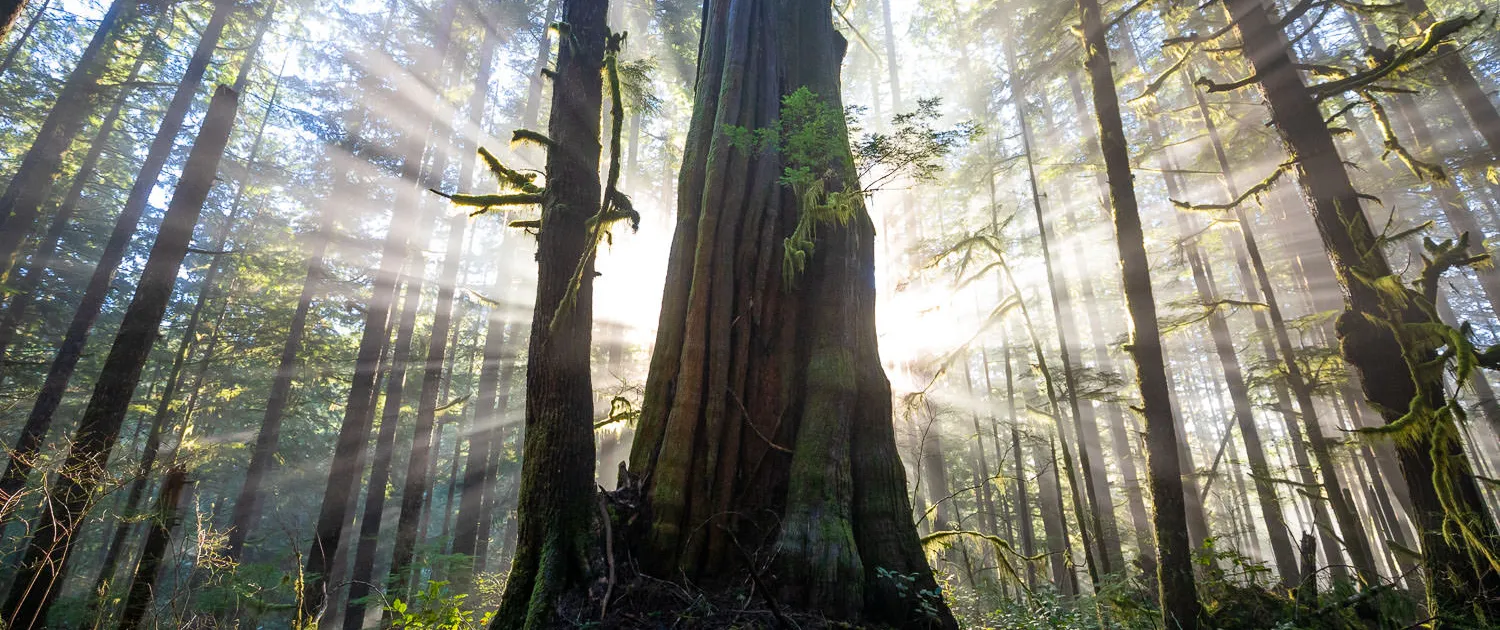 Jun 21 2012
Jun 21 2012Timber Workers and Conservationists Join Forces to Oppose Proposed Logging of Protected Forest Reserves in BC’s Interior
Two seemingly disparate organizations, the Pulp, Paper, and Woodworkers of Canada (PPWC), a union of several thousand BC sawmill and pulp mill workers, and the Ancient Forest Alliance (AFA), a non-profit conservation organization, are joining forces to defend forest reserves in BC’s Interior from a BC government proposal to log them (see https://thetyee.ca/News/2012/06/18/Timber-Survey/). The two organizations will work together to raise public awareness and to encourage their members and supporters to write-in and speak up during the government’s public consultation process that ends on July 15.
“Many people believe forestry workers only think about the short term and care nothing about the bigger picture or future generations. That’s simply not the case. Our members live in the communities that would be directly affected by this short-sighted proposal and some of them took part in the land use planning processes twenty years ago that established these forest protections. They hunt, fish, hike, recreate, enjoy the scenery, and have a quality of life that is enhanced by the standing forests in their regions,” stated Arnold Bercov, Forest Resource Officer of the PPWC. “Opening up protected forest reserves is short-term thinking that does nothing to solve the fundamental problem of unsustainable overcutting, massive wood waste, a lack of value-added manufacturing, and a failure to diversity rural economies. We need to come up with more sustainable strategies that instead factor in the big picture and the long-term health of communities.”
Currently the BC Liberal government is floating a proposal to potentially open up protected forest reserves for logging in the Cariboo-Chilcotin region of BC’s Interior. These threatened forest reserve designations include:
- Old-Growth Management Areas (that protect representative tracts of scarce old-growth forests)
- Riparian Management Areas (that protect fish habitat and water quality)
- Ungulate Winter Ranges (wintering habitat for mountain caribou, deer, elk, moose, and mountain goats)
- Wildlife Habitat Areas (that protect species at risk such as grizzlies and other wildlife)
- Visual Quality Objectives (that protect scenery for tourism)
- Recreation Areas (campsites, hiking areas, etc.)
The proposed environmental deregulation would take place in four Timber Supply Areas (TSA’s): the Prince George, Quesnel, Williams Lake, and Lakes (Burns Lake area) TSA’s.
The rational for opening up forest reserves is that an impending shortfall of available timber to support local sawmills will soon take effect, known as the “falldown effect”. This shortfall in timber in relation to an overcapacity in the forest industry is the result of the loss of mature forests from the pine beetle infestation (caused by climate change and forest fire suppression) and a massive industry expansion in the Interior in recent years to take advantage of the infestation.
Instead, the workers-conservationist alliance of the PPWC and AFA is calling for a forest and jobs transition strategy involving ending massive wood waste in clearcuts (see https://www.policyalternatives.ca/newsroom/news-releases/wood-wasted-bc-logging-sites-would-fill-cross-country-truck-convoy-%E2%80%94-twice), incentives for value-added wood manufacturing industries, support and training for unemployed forestry workers, and economic diversification of rural communities.
“Opening up protected forest reserves to try to prop-up an unsustainable industry a bit longer is like burning parts of your house for firewood after depleting all other wood sources. In the end, you’re a lot worse off,” stated Ken Wu, Ancient Forest Alliance co-founder. “You can’t just reward unsustainable behaviour with more unsustainable behaviour. The Interior timber industry’s unsustainable expansion and overcutting of beetle-affected wood and vast areas of living trees should not be rewarded with more of the same inside of our protected forest reserves now – that’s the worst, most myopic course of action possible and it’s precisely the type of mindset that has brought this planet to the ecological brink. If this option is chosen, it’ll be the albatross hanging around the responsible politicians’ or party’s necks heading into the next BC election.”
Over the next several weeks, until July 15, the Special Committee on Timber Supply, consisting of four BC Liberal MLA’s and three NDP MLA’s, will be holding public hearings in rural communities in the Cariboo-Chilcotin region to gather public input and to meet with key stakeholders. Committee Chair John Rustad, BC Liberal MLA for Nechako Lakes, has already spoken in the media with a heavy bias towards justifying logging in forest reserves. While the committee will meet individually with stakeholders in Vancouver from July 9 to 11, no public hearings have been scheduled in Vancouver or Victoria despite the issue’s importance to all British Columbians.
“This is a precedent-setting proposal of provincial significance. If the falldown in timber volumes in the Cariboo-Chilcotin region can be used to justify opening protected forest reserves there, it could also be used to open up protected forest reserves across much of the province where the timber industry’s massive overcutting of lower elevation old-growth forests has caused a huge falldown effect and extensive mill closures everywhere,” stated Ken Wu. “We’re going to encourage everyone across the province to speak up on this one and to prepare for an extended and relentless battle if need be.”
Opposition against opening up protected forest reserves has come from such organizations as the BC Association of Professional Foresters, BC Wildlife Federation, BC Wilderness Tourism Association, the Healthy Forests Healthy Communities initiative, BC’s main environmental groups including the Ancient Forest Alliance, and now the Pulp, Paper, and Woodworkers of Canada union.





